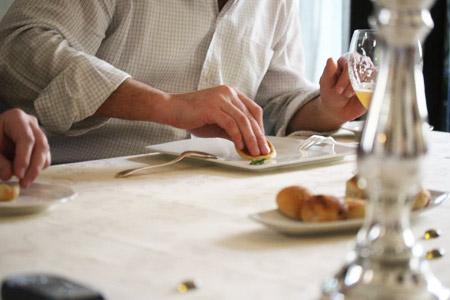Fare la scarpetta is a phrase in the Italian language that’s close to the heart of everyone who has enjoyed a delicious plate of pasta with sauce. Meaning “make the little shoe,” it refers to the small piece of bread used to mop up the last of the sauce on your plate.
This end to a meal ritual is vastly popular all over Italy; however, where it originates is still open to debate. There’s one theory that the practice began in Venice, though bread wasn’t usually served with pasta in northern Italy, whereas it was in the south of the country, therefore it is implausible to assume it originated there.
In his book about medieval eating habits, Fabrizio Vanni proposes that the act took place following the introduction of tomatoes to the Italian diet back in the late 16th century. Before this time sauces tended to be thicker and more robust; with the introduction of the tomato, sauces became lighter and therefore required mopping up. Another suggestion regarding the origin of la scarpetta is that back in a time when wasting food was frowned upon, the bread merely became a tool to be used much like cutlery.
A Calabrese friend of mine who tells me the phrase has its origins in Southern dialect prefers to have a more romantic notion regarding la scarpetta. He is convinced it stems from the heart of cucina povera (poor cuisine), from a time when people were literally so hungry they’d have eaten the soles of their shoes. He says when you are unsure when you’ll eat next, it made sense to mop up every last drop of sauce.
As with many Italian expressions, the reasoning behind the phrase is visual: during the practice of sweeping the bread across the plate the finger becomes the leg that pushes the bread which becomes the shoe. It’s not only an essential part of an Italian meal, but it is seen as a way to extend the pleasure of the repast.
This said there is a time when making the little shoe is frowned upon and Giovanni Della Casa explained it in Il Galateo, his guide to the rules of polite behaviour and etiquette: it is acceptable to engage in the practice during an informal meal, however, in a formal setting and in public, when making the little shoe you must use a fork and not your finger to move it across the plate.













